Christmas bubbles: UK politicians have been discussing coronavirus rules
- Published
- comments
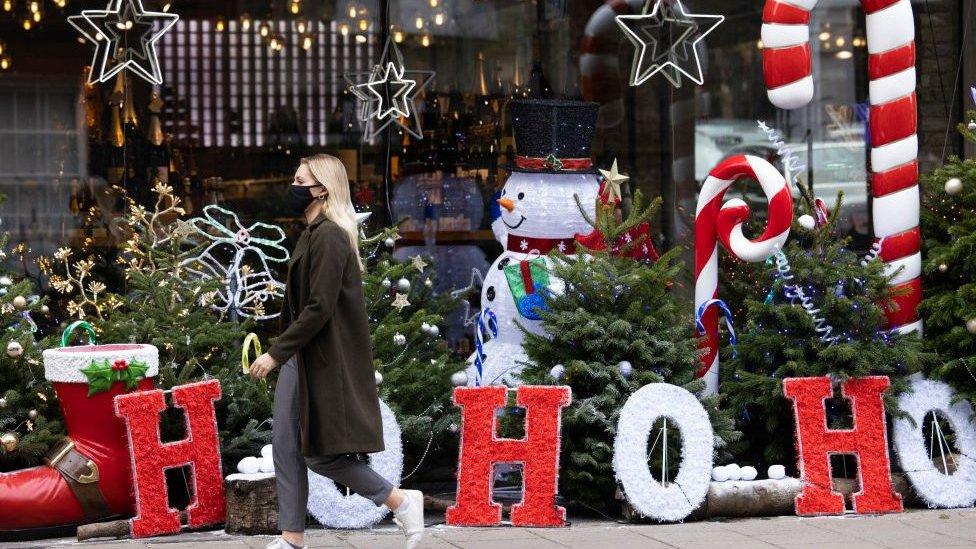
Christmas gatherings should be kept "short" and "small" this year, the Prime Minister Boris Johnson has said.
A relaxation of coronavirus rules will still go ahead in England, Scotland and Northern Ireland, allowing three households to meet, but Boris Johnson has advised people to "think hard" about any plans they make.
Meanwhile in Wales, just two households - plus one other single person who lives alone - will be allowed to meet over Christmas.
First Minister Mark Drakeford announced the change in Welsh rules yesterday - previously they had the same guidance as the rest of the UK nations.
Despite not officially changing rules, Boris Johnson did say that some advice will be different, because the overall situation is "worse and more challenging" than when the decision was taken to ease them.
Senior politicians from Scotland, England, Wales and Northern Ireland have been discussing the plans after warnings from scientists who thought the relaxed rules over Christmas would lead to an increase in coronavirus cases.
However, it was agreed that the eased restrictions should still go ahead between 23 to 27 December, but that there will be stronger guidance encouraging people to limit contact with others.
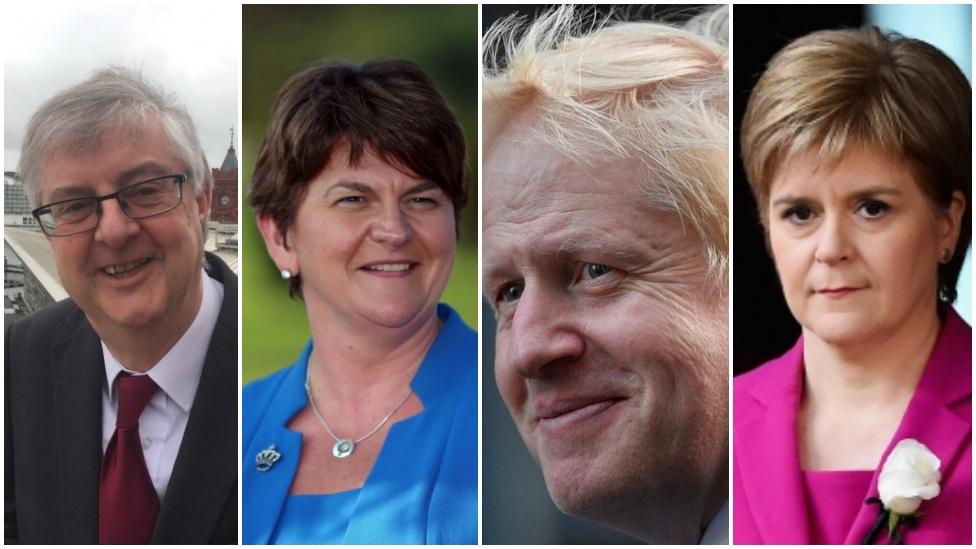
The leaders of the UK nations: Welsh First Minister Mark Drakeford, Northern Ireland's First Minister Arlene Foster, Prime Minister Boris Johnson and Scottish First Minister Nicola Sturgeon
What's the problem?
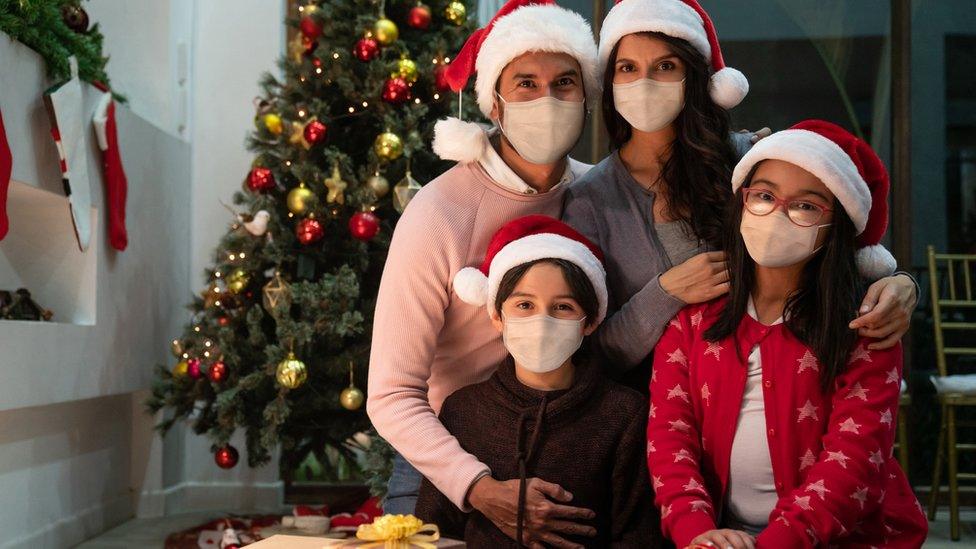
Many scientists are saying that with the virus still around, and growing in some parts of the UK, the relaxing of the rules to allow three households to meet at Christmas shouldn't happen.
They say it's too risky and could lead to a bigger coronavirus spread.
Ahead of the four UK nations meeting on Monday and Tuesday, experts in two leading medical journals said the decision to ease restrictions was a mistake and would lead to more pressure on the NHS and more danger of the virus spreading.
England's Chief Medical Officer, Professor Chris Whitty, said during a briefing at Downing Street that there is an "increased risk at Christmas" of the virus spreading, but that there are ways to reduce that risk.
He gave four factors for people to consider not just at Christmas, but around other religious festivals too, such as Hanukkah:
"Keep it small" - if bubbles are smaller, then fewer households and people are mixing.
"Keep it short" - less time spent together, means there is less chance for people to spread the virus.
"Keep it local" - this is around trying to avoid people living in areas with higher case numbers, travelling into areas with lower case numbers.
"Think of most vulnerable people" - he stressed that for those who are vulnerable, they "would very soon be protected" by the vaccine, but they aren't yet.
How has the advice now changed?
Advice isn't the same as the law - it is guidance or action which is recommended rather than compulsory, so people can choose whether or not they want to follow it.
Mr Johnson said the existing plan for Christmas should go ahead "because we don't want to criminalise people's long-made plans".
But he did also tell MPs that everyone "should exercise extreme caution in the way we celebrate Christmas".
There have been sterner warnings urging people to keep social contact low.
During a briefing from Downing Street, the PM said: "Have yourselves a merry little Christmas and I'm afraid this year I do mean little.
"With the vaccine and everything else that we're doing, next year we hope that it will be back to Christmas as normal for everyone."
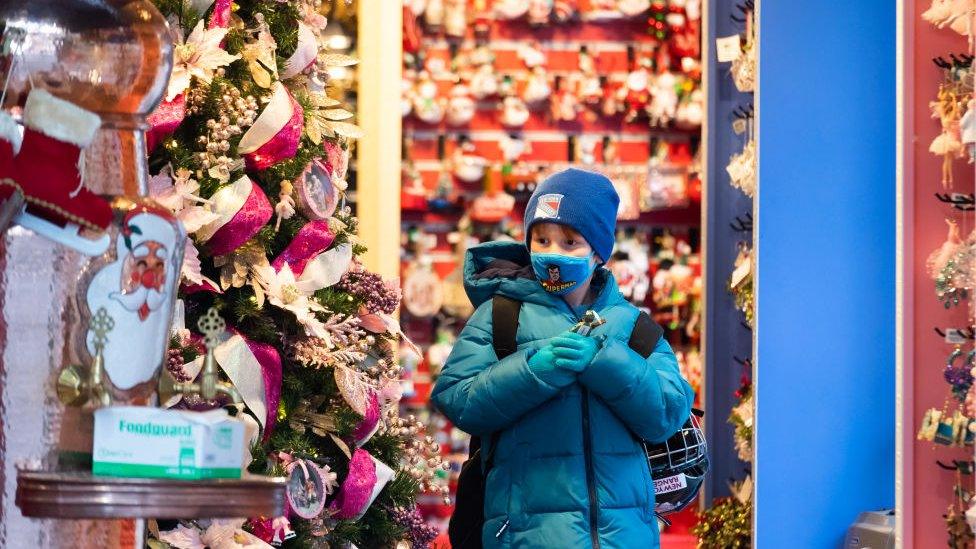
He stressed that all four nations "want to send same message" that a smaller Christmas, is going to be a safer Christmas.
"When we say three households, I want to stress that these are maximums and not targets to aim for."
In Wales, a change in the law will be made to mean only two households can mix indoors, and people living there will return to a stay-at home lockdown as soon as the Christmas period is over.
Welsh First Minister Mark Drakeford announced that all non-essential retail and close-contact services in Wales must close at the end of trading on Christmas Eve.
Meanwhile, people in Scotland are being asked to only meet on one of the five days between 23 and 27 December.
Scotland's First Minister Nicola Sturgeon said: "The safest way to spend Christmas this year is to spend it in your own home with your own household - if you can do that, that is my strong recommendation."
There will be some guidance around travel between different areas with different levels of the virus.
Ms Sturgeon added: "We will set out advice if you are living in any of the nations in one of the highest level of protection - which in England and London is tier three - then we don't think you should be travelling to other parts of the UK."
It was already advised that Christmas three-house bubbles in Scotland should be made of no more than eight people over the age of 11.
Northern Ireland's First Minister Arlene Foster said she would wait to hear from her health minister before announcing changes, but added people must take "all and every precaution" over the festive period.
Up to three households can form an exclusive 'Christmas bubble'. In Scotland for example, bubbles should include no more than eight people over the age of 11.
Households can only be in one Christmas bubble and bubbles can't be changed or extended once they've been formed.
People can travel between the UK nations to meet their Christmas bubble between 23 and 27 December (those going to and from Northern Ireland can travel between the 22 and 28).
Christmas bubbles can only meet in private homes or gardens, places of worship, or public outdoor spaces.
Overnight stays at each other's households are also allowed.
People can continue meeting friends or family members who aren't in their Christmas bubble - but this depends on the local rules where they live.
Children under 18, whose parents don't live together, may be part of both parents' Christmas bubbles.
An information campaign is expected to be launched in the days running up to Christmas, with people being urged to think carefully before bubbling with elderly or at-risk relatives.
- Published5 January 2021
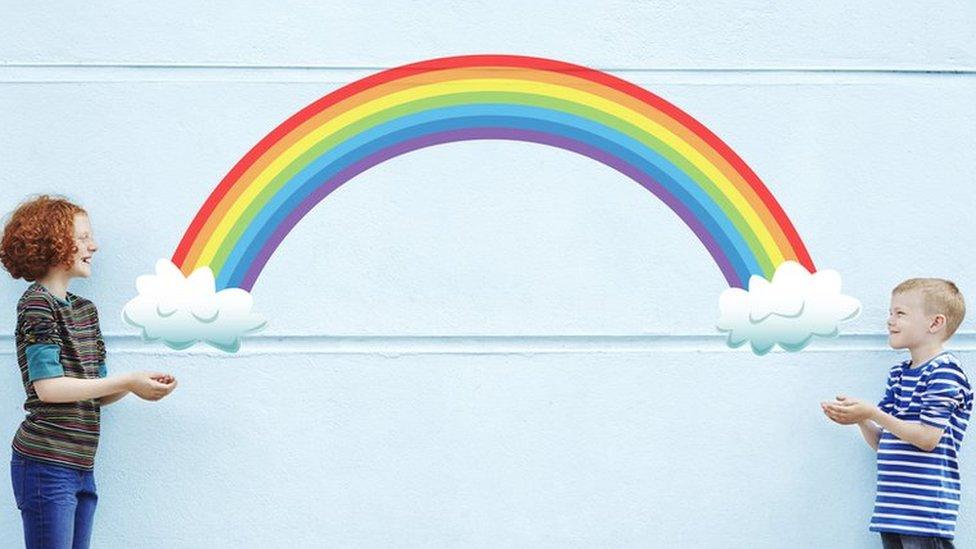
- Published25 November 2020
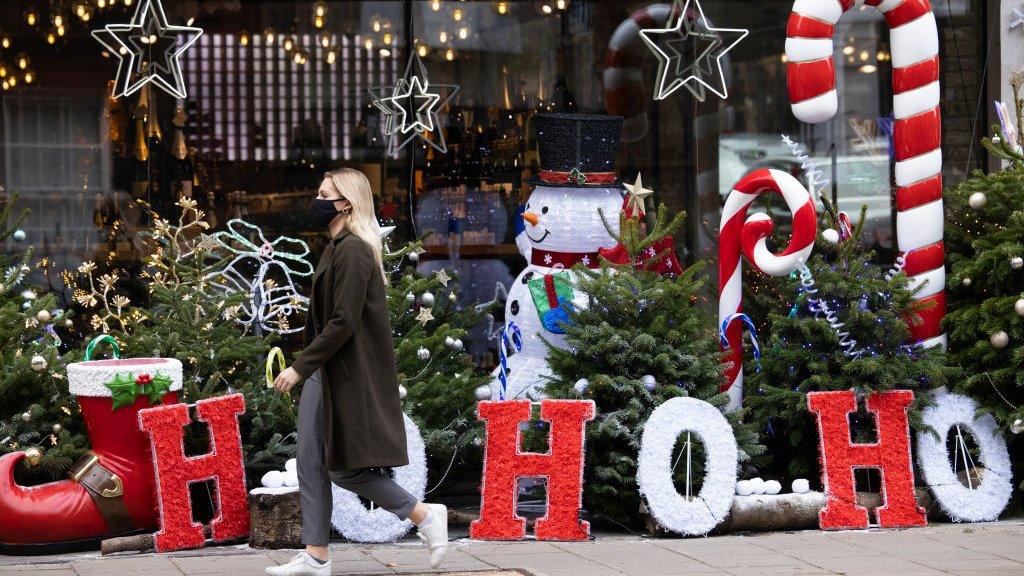
- Published15 December 2020
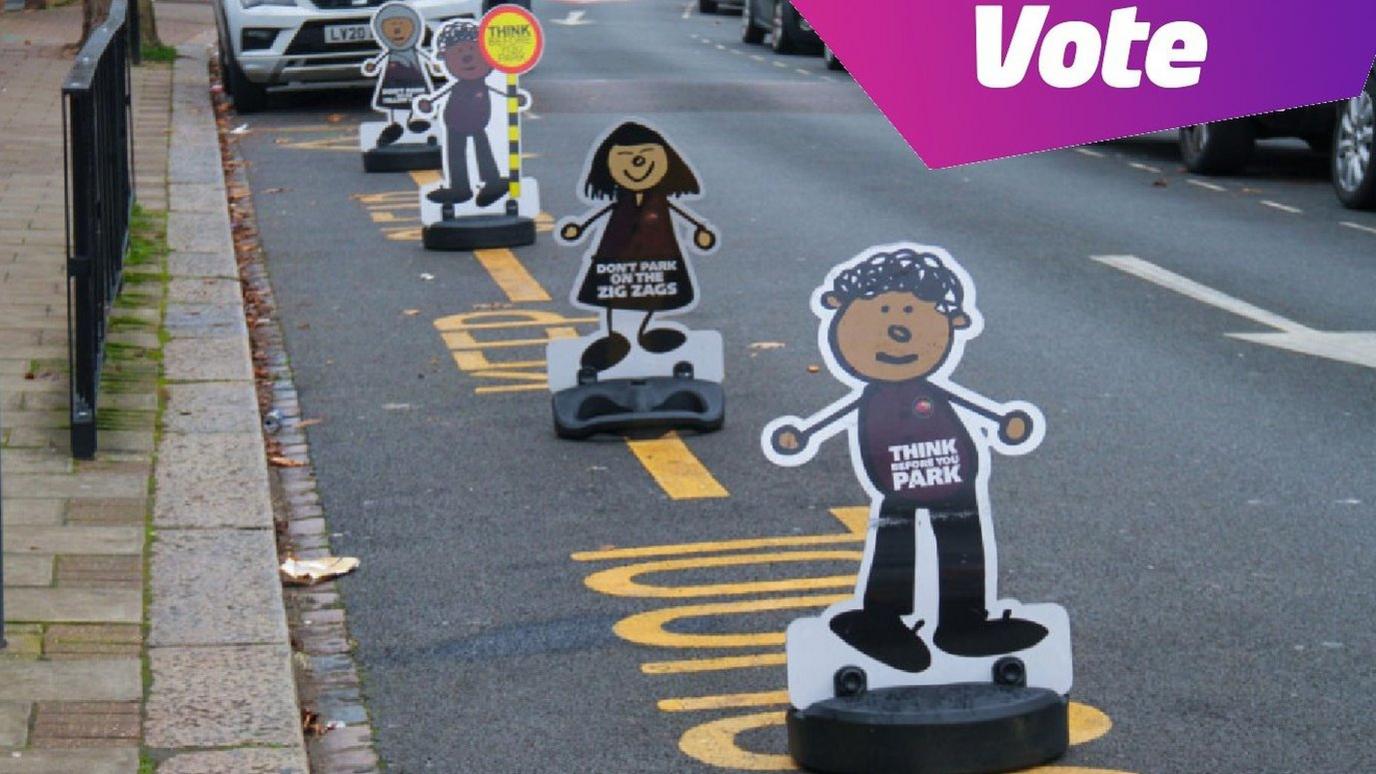
- Published15 December 2020
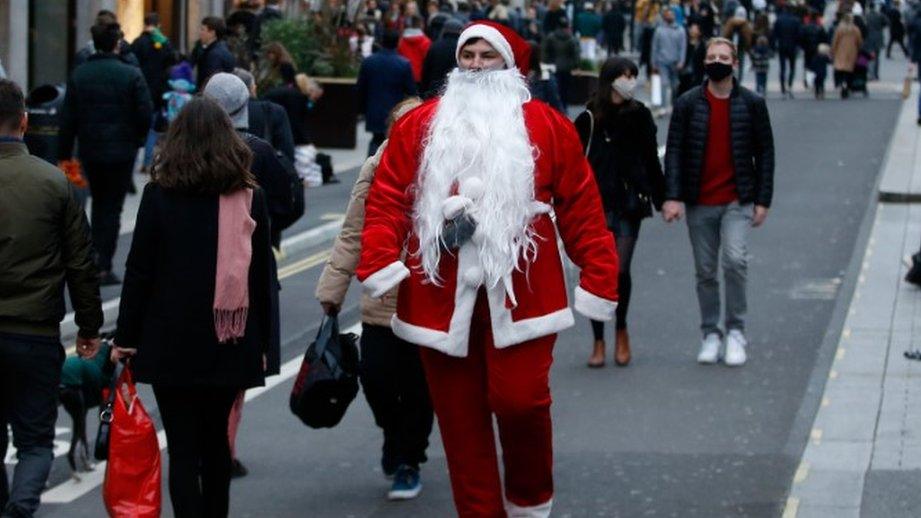
- Published16 December 2020

